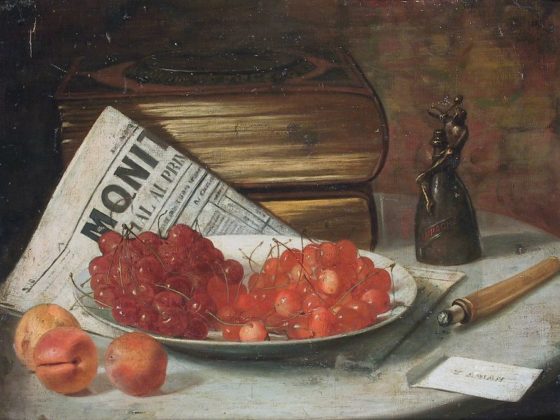We brought some contemporary Romanian women writers to your attention a while ago, when we talked about the most popular and prolific contemporary Romanian authors translated into English (but not only), and mentioned two of the most representative women writers, Gabriela Adameșteanu and Ioana Pârvulescu, but it’s time you met a bunch of several others, whose works are available in translation, mostly in European languages, but not only.
Florina Ilis
Born in 1968, Ilis holds a PhD in philology and started writing as a teenager. However, her first book, a collection of haikus, was published in her early 30s and came as a result of her scholarly interest in Japan. Florina Ilis continued with novels, her most recent one, published in 2018, being Cartea numerilor (The Book of Numbers), but she also tried her hand at plays and essays.
Her most famous novel to date, Cruciada copiilor (The Children’s Crusade), published in 2005, was a huge success with both critics and readers, being considered the best book of the year and subsequently winning numerous prizes in Romania and abroad. With a nod to the famous failed medieval children’s crusade, Florina Ilis’s novel follows a train ride taken by a group of children and teachers on their way to the seaside, and manages to create a unique and vivid image of a world dominated by the media. The novel has been so far translated into French, Spanish, Italian, Hungarian, Serbian and Hebrew.
Doina Ruști
Novelist, professor and scriptwriter, Doina Ruști (b. 1957) is one of the most prolific contemporary Romanian women writers, having been awarded numerous times for her body of work. With a strong passion for history, her work is thematically diverse and she is renowned for her solid, epic novels.
She has published no less than 11 novels so far—Homeric (2019), being the latest—and her work has been included in various literary anthologies, in Romania and abroad. Most of her books have been translated in Italian, Spanish, French, German, Hungarian or Turkish. Among her most popular translated novels is Lizoanca la 11 ani (Lizoanca at the age of eleven), available in German, Italian, Spanish, Hungarian, and Macedonean. The novel tells the story of a young girl accused of spreading an epidemic in a small Romanian village, becoming, over the course of one summer, not only public enemy no. 1, but also a mass media phenomenon. The intensity of the book reminded Spanish journalist and critic Miguel Baquero of the fierceness of the Hungarian author Ágota Kristóf:
It cannot not be—surely it is not—by chance that both authors, Kristóf and Ruști, come from the dismembered East Europe: both in the case of the Hungarian and now in that of the Romanian there is a cruel, ruthless atmosphere, in which nobody cares for the other.
Nora Iuga
Hailed by the German newspaper Die Welt as “the great dame of Romanian poetry”, Nora Iuga (b. 1931) is a poet, novelist and translator. She has authored numerous collections of poetry and prose and translated massively from German (Herta Müller, Günter Grass, Paul Celan, Elfriede Jelinek, Ernst Jünger, Aglaja Veterany, etc.). In 2007 she was awarded the Friedrich-Gundolf Prize by the German Academy of Language and Poetry, for her contribution to disseminating the German culture throughout the world and in 2018 she received the Spiegelungen Prize for excellence in poetry by the IKGS—South-East European Institute of Culture and History—in München.
Several of her poetry books have been translated into German, while many of her poems were featured in various anthologies. Nora Iuga’s most renowned novel, Sexagenara şi tînărul (The Sixty-Year-Old Woman and the Young Man), published in 2000, has been translated into German, Spanish, Italian, French, Slovenian, Bulgarian and Polish. The novel, which reads as a confession with strong autobiographical elements, uses storytelling as an element of seduction—an elderly woman narrates her life to a much younger man, mixing memories of her youth, friends and lovers with funny literary trivia.
Lavinia Braniște
Writer and translator, Lavinia Braniște (b. 1983) is acclaimed for her ability to tackle mundane situations, and regarded as one of the most talented writers of her generation. She made her debut with a poetry volume, but soon switched to short stories, children’s books and novels. Her latest novel, Sonia ridică mâna (Sonia Raises Her Hand) was published in 2019 and follows a young girl who wants to write a script for a film inspired by Zoia Ceaușescu, the famous dictator’s daughter. The book has been recently translated into German—Sonia meldet sich—by Manuela Klenke and is expected to be published by the German publisher Mikrotext in the spring of 2021.
Mikrotext has already published Lavinia’s previous novel Interior Zero (2016) with the title Null Komma Irgendwas, as well as some of her short stories in the ebook collection Planet Romeo. Starting with 2020, Interior Zero is also available in a Polish translation, Wewnętrzny zero. Strongly relying on Lavinia’s own experiences, the laconic and self-ironic novel focuses on two main threads, which, obviously, intertwine: everyday office life in a Bucharest construction company and the mother-daughter relationship, seen within the realms of the cliché of Eastern Europe of the past decades—parents who went to work in Western Europe and left their children behind.
It will take a long time to search through Romanian contemporary literature and find such a direct and accurate reflection of today’s Romanian society.
Mirko Schwanitz, Bayerischer Rundfunk
Tatiana Țîbuleac
A former reporter and news anchor turned writer, Tatiana Țîbuleac (b. 1978) holds double citizenship, Moldavian and Romanian, and has been living in Paris since 2007. She made her debut in 2014 with Fabule Moderne (Modern Fables), a collection of short stories and fables. Her first novel, Vara în care mama a avut ochii verzi (The Summer in Which Mother Had Green Eyes) was published to great acclaim in 2017 and tells the story of a dying woman and her son, who are spending their last summer together in a French village. Awarded by the Writers’ Union of Moldova and the Romanian literary magazine Observator Cultural, the novel was translated into French, Spanish, Norwegian and is now being translated into several other languages, including German and Italian.
Tatiana published her second novel Grădina de sticlă (The Glass Garden) in 2018, for which she received the European Union Prize for Literature in 2019.
Updated in November 2020.
Featured image: César Viteri / Unsplash











